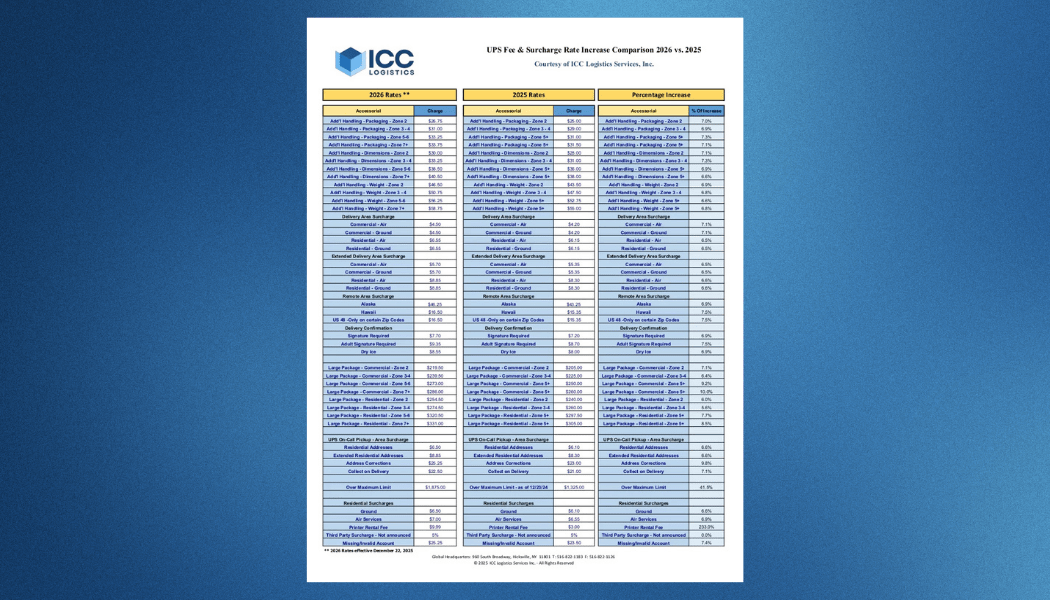6 Reasons Why Logistics Might Be More Important To Your Business Than You Think
Guest Post by: Howie Bick, The Analyst Handbook
Logistics is sometimes overlooked as an important part of a company’s underlying business, and plays an important role incorporating a variety of pieces to a business’ puzzle. Logistics is often coordinating between two parties, how a package goes from one place to another, and ensuring that your company has the necessary materials or resources it needs to keep moving forward. It is often tied to several different aspects of a business, from the time it takes for raw materials to arrive, to the time it takes to deliver your finished product, or the coordination between the purchasing party and the selling party. Whether your business is a marketplace provider, a wholesale manufacturer, or a B2C company, logistics plays an important role in the way the business operates, the type of infrastructure a company builds, the type of brand image you create, each customer’s experience, and the customer service aspect of your business as well.
Company Infrastructure
Logistics is an important part of a company’s infrastructure, because the way company’s process sales, order new materials, and coordinate their delivery play a major role within a company. The infrastructure behind a company is often closely tied to the logistics it has in place. Whether it’s the trucking company it utilizes to move goods from A to B, the backend development it has in place for its technology, or the way they process orders from purchase to delivery, logistics is how these tasks are completed, and continue to be completed.
Having sound logistics can provide companies with a variety of benefits, from their corporate finances, to their operational expertise. Having strong logistics can make it easier for companies to expand, and increase in size. They’re able to have a strong foundation to build off of, and can have a strong infrastructure to begin with. Without a sound logistics plan, a company’s business can see increased lead times, less sales processed, and less goods produced. Having a solution to continue the flow of goods for a company, is what keeps the business going. If you’re a manufacturer, without having the raw materials on hand, you can’t produce the goods you need to sell. Solidifying the logistical aspect of your business, can be a great way to increase the velocity at which you sell, decrease the amount of time between production and delivery, and keep the business running smoothly.
Delivery
A big part of logistics is the time it takes to deliver your products and services to your customers. Logistics is how you’re able to distribute your goods, ship your products, or move your inventory from one location to another. Without having a strong logistical structure, you run the risk of losing time on delivery, frustrated customers, and having shipments arrive late. While some people may feel delivery dates aren’t important, many would tend to differ.
As the world we’re in continues to gravitate toward same-day delivery, next-day deliver, or two-day delivery, logistics has become more and more important. Consumers expect goods to arrive within a certain timeframe, have the opportunity to track their products along the way, and compare one company’s delivery service to others. While some people may not feel delivery is so important, others have been using it as a way to gain a competitive advantage, build market share, and further develop their businesses.
Brand Image
Part of the way brands are built and companies are created is based on how they’re able to process orders, and produce the desired result their customer is looking for. A company’s brands, and brand images, play an important role in the type of position it has in a marketplace, the type of reputation it builds with customers, and what customers can expect to experience moving forward. Logistics factor into that equation. Companies that have a strong logistical footprint, are able to deliver on the estimates it provides to customers, its logistics can continually produce for them on a consistent basis, and continue to build up more brand loyalty with purchasers along the way.
In the business environment we’re in today, many companies are looking for more and more ways to expand, grow market share, and enter into new industries. In order to compete, smaller or existing companies can utilize logistics to keep customers happy. By having a strong logistical presence, you increase the likelihood of producing for your customers on a continuous basis, not give them any reasons to leave or entertain new companies, and build brand loyalty with them as well. Through having strong logistics, you can work to protect the market shares you’ve been able to capture, and the businesses you’ve been able to build.
Costs & The Financial Side
Logistics have the potential to influence your business from a financial perspective, by increasing delivery costs, seeing increased returns, rising sales revenue, or through the investments made into logistics. Logistics for a company can sometimes be costly as well. It might be a large undertaking or cost a substantial amount in order to open a new warehouse, or build a new hub, but it offers you the opportunity to cost your delivery costs in half.
Taking a look at it from the financial analyst job description angle, evaluating whether an investment into logistics is worth the investment, or the upfront cost, depends on how much you feel it might save you delivery costs, the type of synergies or benefits it might offer you, and where your company is currently at logistically. Considering the cost to deliver goods, the time spent driving, the gas spent, the tolls accumulated, might not feel like a lot, but at scale, over a large amount of time, when you’re a large business, processing orders, it can add up. You can use good logistics practices as a way to decrease costs, and increase profits. That new hub might reduce delivery time in half, or cut the distance traveled by a third. Doing that trip at scale, over a year, five years, or ten years, can really add up and make a different cost wise. You might be able to generate more sales by having a stronger logistical footprint. Customers might be more satisfied, or more inclined to reorder from you based on the time it took to receive their order, or the results you produced.
Customer Experience & Customer Service
Customer experience is ultimately how customers feel, and whether or not they were satisfied with the way the company performed, or the experience they received from the company. As previously mentioned, more and more companies have been looking for shorter time frame solutions, same-day, next-day, and two-day, that those types of delivery methods have begun to become more and more the norm, or what customers are using to compare your company against. Having faulty or weak logistics, can influence the type of experience customers have. Weak logistics might see frequent downtimes in processing, longer wait times for orders to be processed, and longer delivery times to receive goods. Keeping your customers happy, making sure they are having positive customer experiences, can be influenced by the logistics behind your company. Creating positive customer experiences can encourage customers to speak highly about your business to friends, increase the likelihood they might purchase from you again, and create positive reviews for you where you have a brand presence or location on digital platforms. Strong logistics can play a role in creating a strong customer experience for your clients, and keeping them wanting to purchase more in the future.
Another way logistics can impact your company is through the customer service aspect. Companies who have poor logistical setups, or poor logistical infrastructure, can see an increased number of customer service inquiries as well. When customers aren’t receiving the products and services they offered in a timely fashion, more and more of them will reach out to your customer service staff, look for answers, and inquire about an update. An increase in customer service inquiries can lead to you needing more customer service personnel available, frustrated customers leaving negative reviews, or making it more difficult to provide a solution for each customer inquiry.
Competing In The Marketplace
With more and more business being created, and entering into new industries, competition has become more prevalent. One way you can work to create a competitive advantage within the marketplace, is by having strong logistics. Strong logistics might make it tougher or more difficult for others to truly compete with you. You might be able to create a stronghold on a particular market segment, by having the logistics and infrastructure built, while new competitors need to create it, and invest in it. On the other hand, logistics can be a way for you to be priced out, or to lose market share from your competitors as well. Companies who can produce products in a faster time frame, provide better customer service, or price their products better, are able to make it more difficult for competitors to compete. If you’re able to create a sustainable and strong competitive advantage through your infrastructure and logistics, you might increase your company’s competitiveness within the marketplace you operate in.
Conclusion
Logistics have the potential to play an important part in any company or businesses operations. Companies can build a strong logistical presence in order to build great company infrastructure that enables them to expand their businesses more easily. Companies with strong logistics can find ways to decrease time to delivery, reduce the cost or amount spent on delivery, and better compete against their competitors. Companies who have a strong logistical footprint, can see effects on their brand image, with the way customers view their company, the type of brand reputation created, and their position within the marketplace. Logistics has the potential to influence the experience customers are having, which can create a positive impact by having customers become repeat purchasers, recommending their company to friends, and also through sharing their positive experiences online.
Companies who overlook logistics, can see the number of customer service queries rise, increasing the need for customer service representatives, adding on more costs, and additional customer service queries they need to manage. Having a strong logistics infrastructure and proper planning in place, can help companies compete within the marketplace, create competitive advantages, and build infrastructure that makes it more difficult for new entrants to compete with them. All in all, logistics has the potential to influence your business in a variety of ways, and having a strong logistics foundation and plan can enhance the way a company competes within the marketplace they’re in.
Looking to create a more robust and solid logistics program? Reach out to ICC today to learn more.



 to receive our FREE white papers:
to receive our FREE white papers: